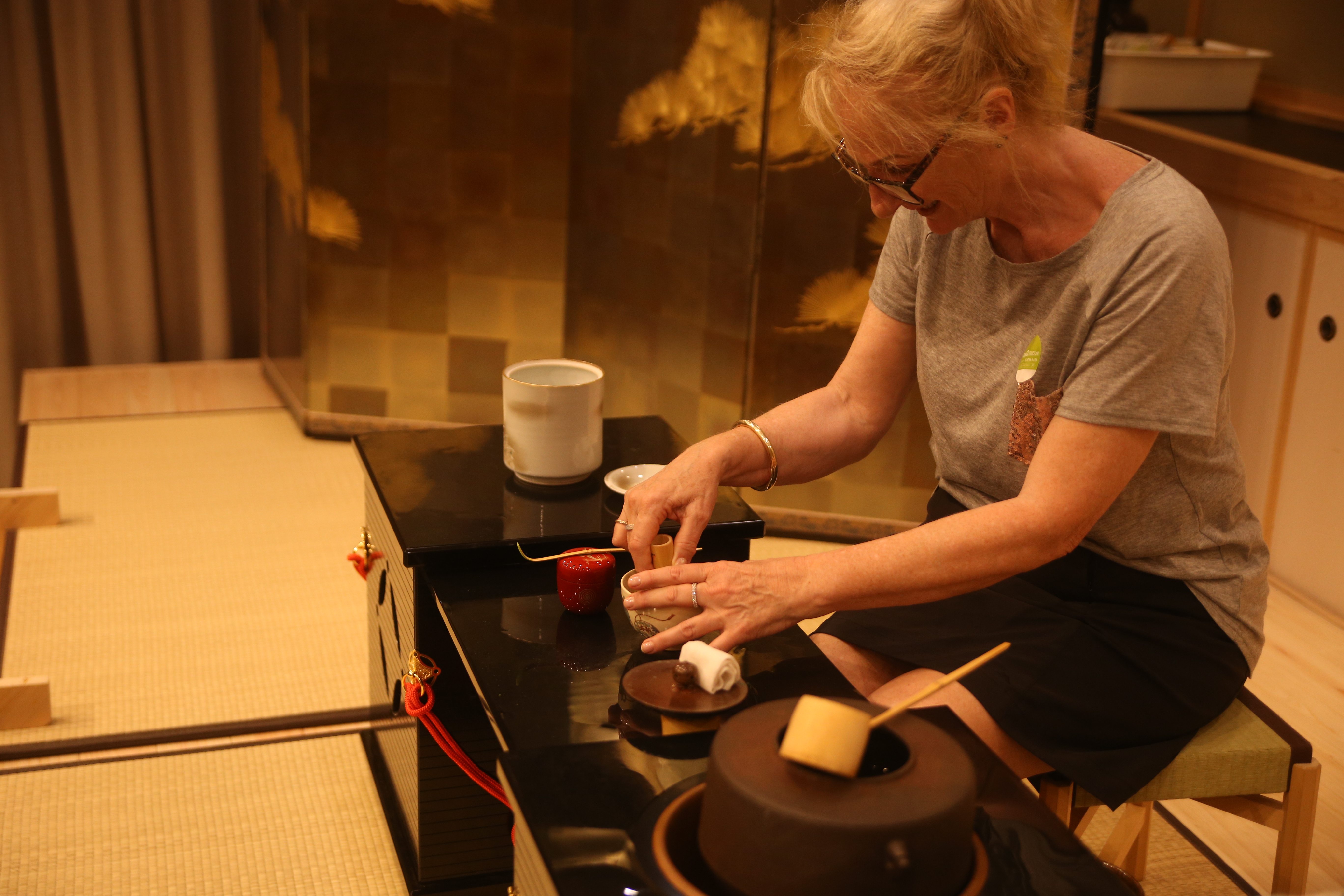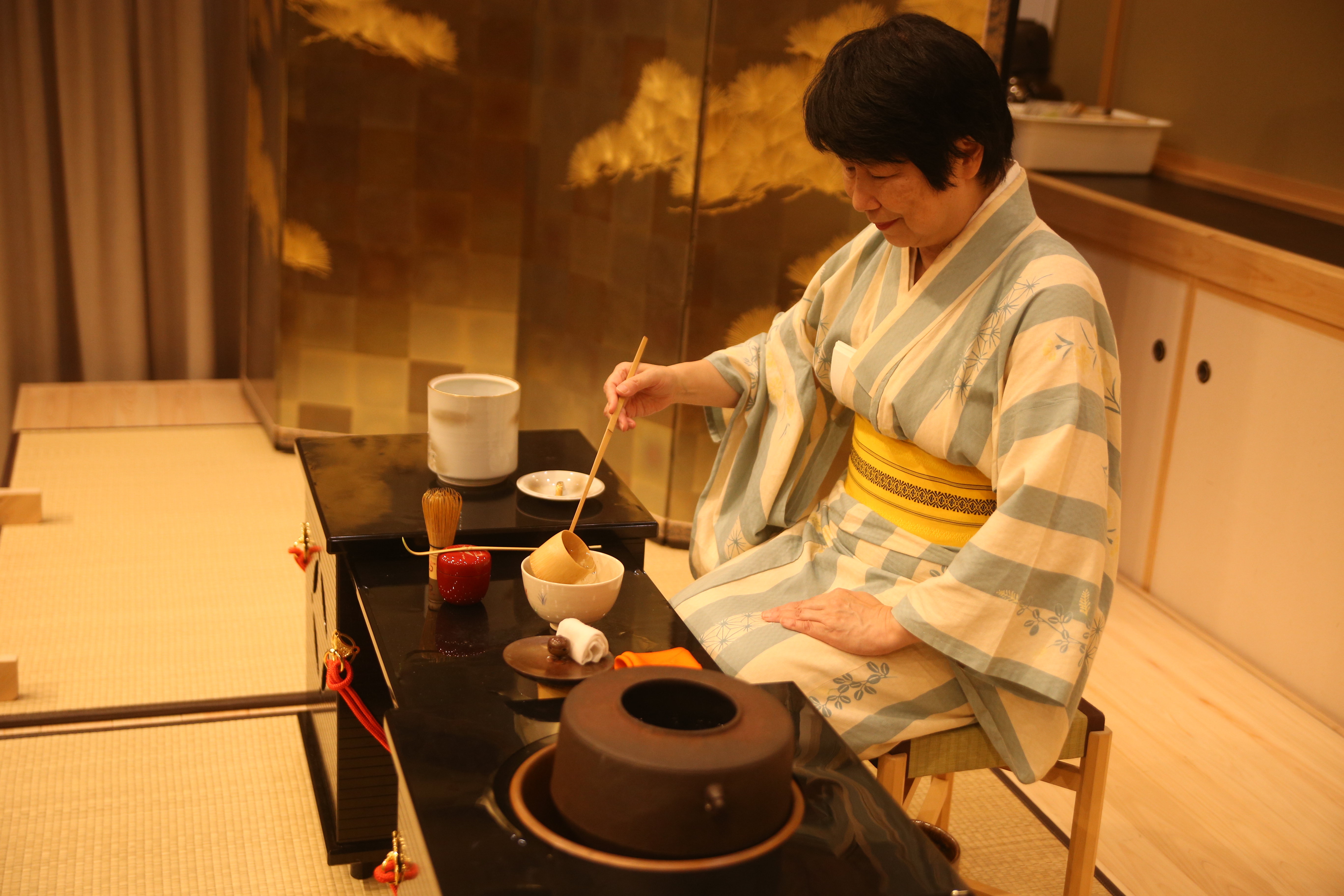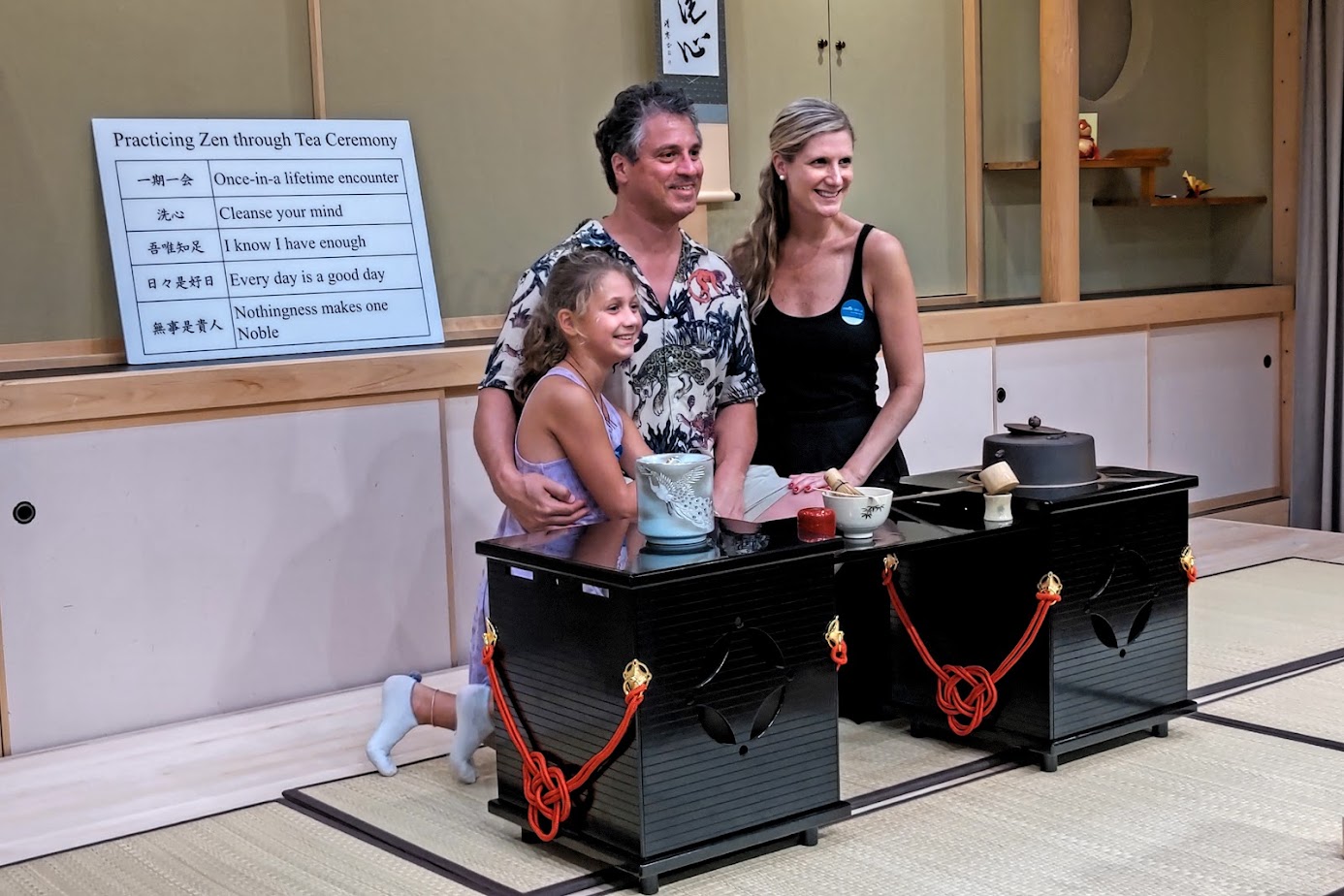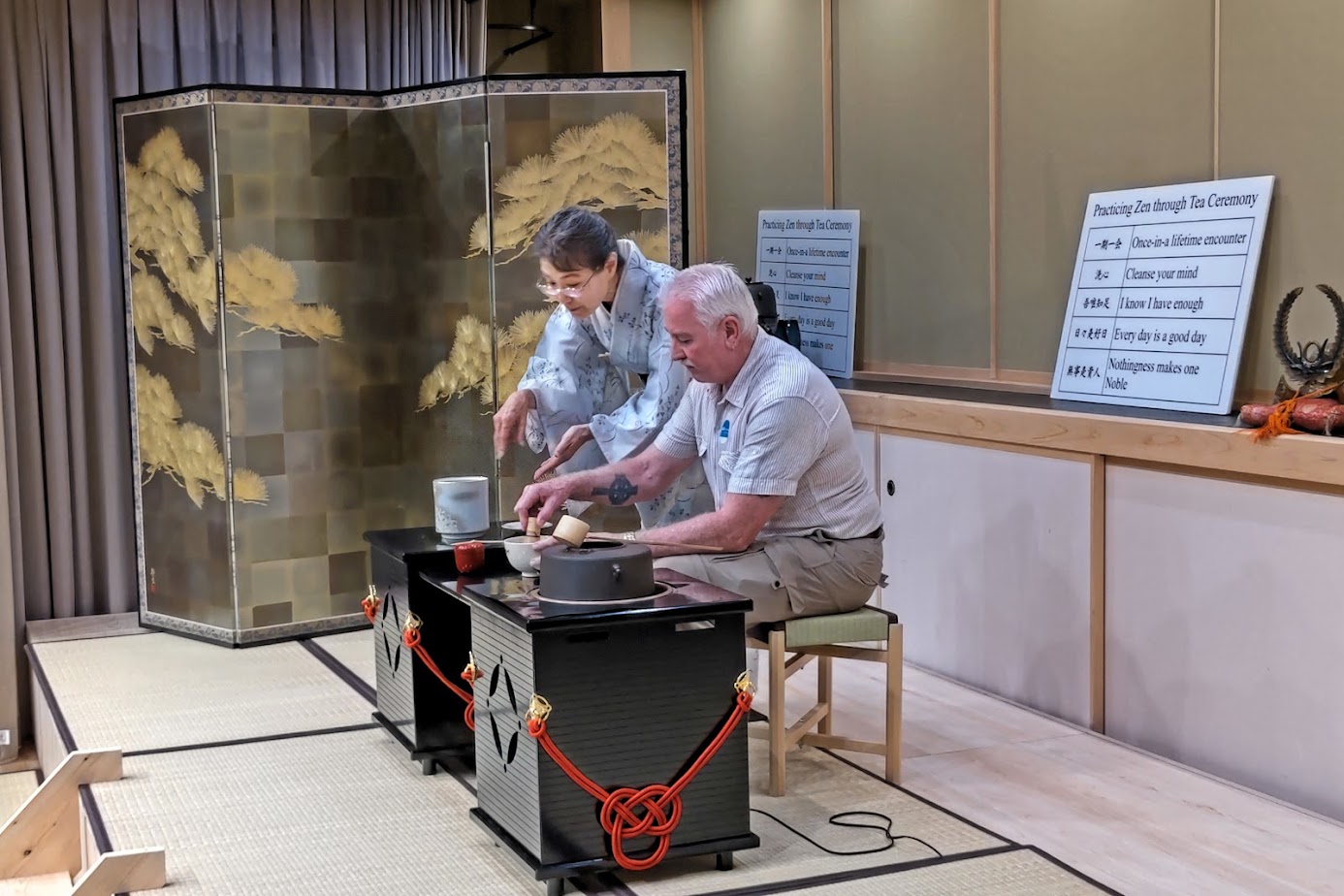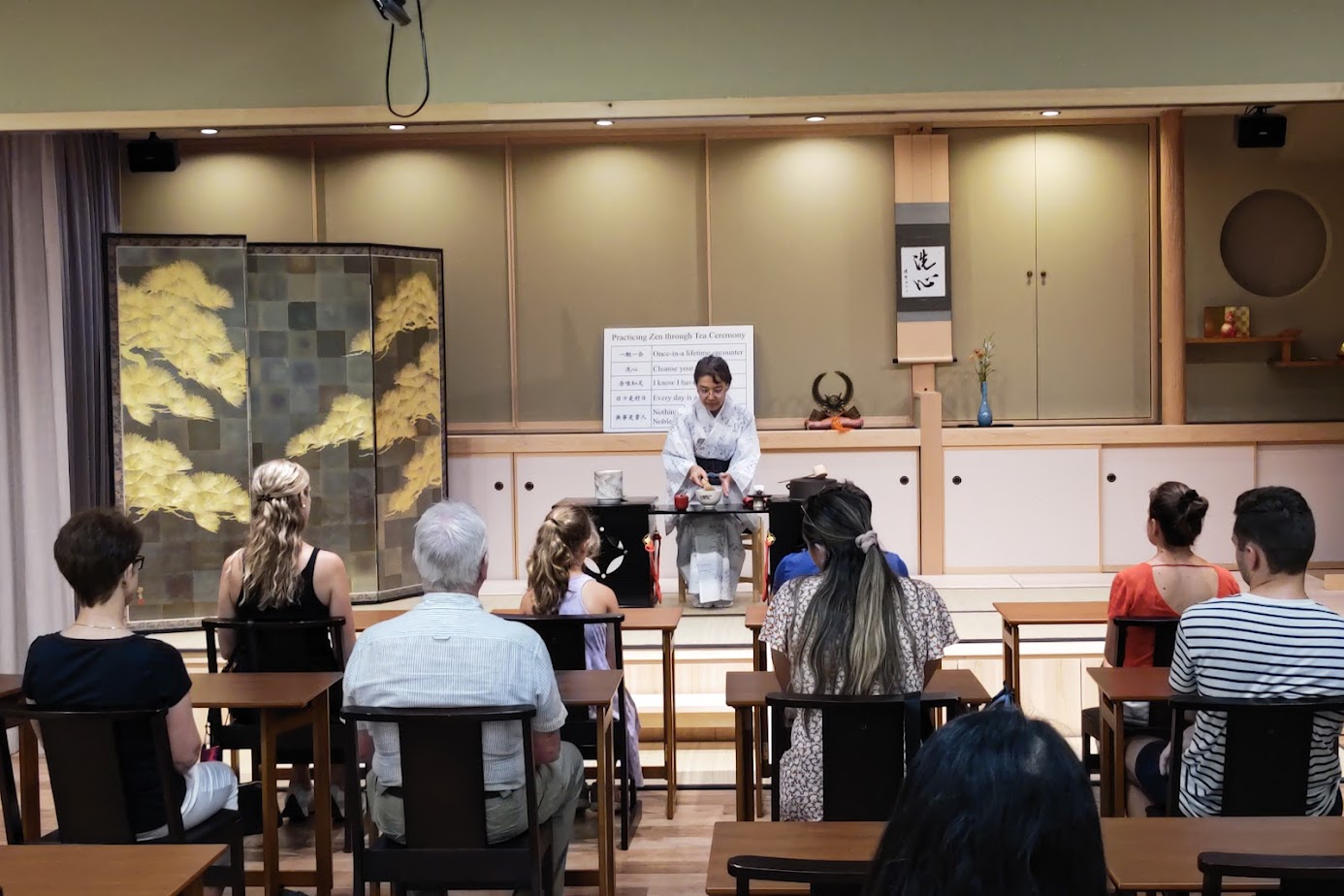Morning Tea Ceremony -Regular Program-
C037
In this program, you will actually experience a tea ceremony in English. You can learn deeply about the Zen spirit expressed in Japanese art and architecture.
◆Program content Tea Ceremony
・Demonstration: A professional tea master and nationally certified interpreter guide will demonstrate the basic techniques of the tea ceremony.
・Try it yourself: Experience the tea ceremony yourself under the guidance of an instructor. You can make tea using traditional tea ceremony procedures.
HIGHLIGHT
・Try traditional Japanese confectionery that have been specifically paired with matcha tea
・Go through the steps of the Japanese tea ceremony with a professional tea master
・Learn in depth about the spirit of Zen expressed in Japanese art and architecture
・Make tea through the traditional tea ceremony process yourself
More info
The History of Japanese Tea Ceremony
The modern form of Japanese tea ceremony was established in the 16th century by Sen no Rikyu. Sen no Rikyu was a Zen Buddhist monk who trained at Daitokuji Temple, a significant Zen establishment with a long history connected to tea ceremony. At that time, Japan was in the midst of a period of warfare during which hundreds of warrior clans spent their days fighting each other.
In such a time of war and violence, Rikyu felt a need for a place where warlords could communicate without weapons. That venue was the tearoom, a space of harmony, respect, and tranquility that pursued the beauty of simple architecture. To welcome guests, the proprietors of Sen no Rikyu’s style of tea ceremony decorated these tea rooms with hanging scrolls expressing the spirit of Zen and displayed ikebana flower arrangements to please the guests.
In this well-prepared space, a tea host served matcha (powdered green tea) to help guests discover peace of mind. It is upon these principles that we practice tea ceremony today.
Why practice tea ceremony?
The moment shared between guests in the tearoom is called “Ichigo Ichie” meaning “a once-in-a-lifetime encounter”. This philosophy is a central part of Japanese tea ceremony, reminding us that each moment is significant in life, despite the conflicts and troubles of the world. Under such circumstances, we practice tea ceremony to experience the spirit of Zen, which we believe helps us to reevaluate our own desires and perspectives on life.
Itinerary
CANCELLATION POLICY
If you cancel your reservation, the following cancellation rates and remittance charge will be charged.
(1) 14 days - 3 days prior to the program date: 20 % of the program fee
(2) 2 days of the day before the program date: 50 % of the program fee
(3) a day before the program date: 100 % of the program fee
There are no reviews yet. Be the first one to write one.
PROGRAM FEE(Excl. consumption tax)
- Fee per Person
- 5,000JPY
- STARTING TIME
- 10:00~
- DURATION
- 45 mins
- LOCATION
-
Senshinan (B208) in the Kikai Shinko Kaikan Honkan building (2 minutes north of Tokyo Tower)
- MINIMUM NUMBER OF PARTICIPANTS
- 2 people
- INCLUSIONS
- Tea ceremony performance with a tea master of 5+ years’ experience
1 x Wagashi (Traditional Japanese confectionery)
Matcha green tea
Second tea ceremony performed by yourself (with instruction)
Explanation of tea ceremony, Zen practices, Japanese hanging scrolls and tea utensils in English
- EXCLUSIONS
- ? Hotel pick-up and drop-off
? Any extra food and drinks
- NOTIFICATIONS
- ◆ This is a shared program. Multiple groups may take this program at once.
◆ Please follow the instructions of the guide during the program. We will not be responsible for any accidents that may occur due to disobedience of the guide's instructions.
◆ The program duration stated is only an approximate. Please note that the duration of the experience may vary depending on situation and number of guests.
◆ For the cultural experience programs, you are required to meet our guide at a designated meeting place. If you are late, please contact us at 03-6432-0195 during business hours (from 8:00 to 17:00 on weekdays,from 8:00 to 10:00 on Saturdays). We may also provide you with an additional telephone number to contact in advance of the program.
Please note: The main entrance to our facility is locked on Saturday afternoons, Sundays, and national holidays. If you attend an experience on one of these days, please wait in front of the lobby and a staff member will come to meet you
◆ If you require special assistance during the program due to any of the following: religious reasons, physical conditions, illness, allergies, or age of children, please be sure to indicate this in the remarks section of the reservation form at time of application. Please note that we cannot guarantee any arrangements or changes to the program without prior inquiry.
◆The minimum number of participants for our cultural experience programs is 2, with the exception of the kimono experience, which can be attended as a single participant (1+ participants).
◆ This program is typically held in English. However, languages other than English can also be supported. Please inquire at info@truejapantours.com for details.
◆ Our business hours arefrom 8:00 to 17:00 on weekdays,from 8:00 to 10:00 on Saturdays. Please note that inquiries received outside of business hours will be handled on the next business day. The application deadline for this program is 10:00a.m. (Japan Standard Time) five business days prior to the tour date. If you wish to apply after the deadline, please contact us at info@truejapantours.com.
◆Please note that we cannot guarantee arrangements for programs purchased after the application deadline without prior inquiry.
Stocker
BOOKMARKS
- Not available.


